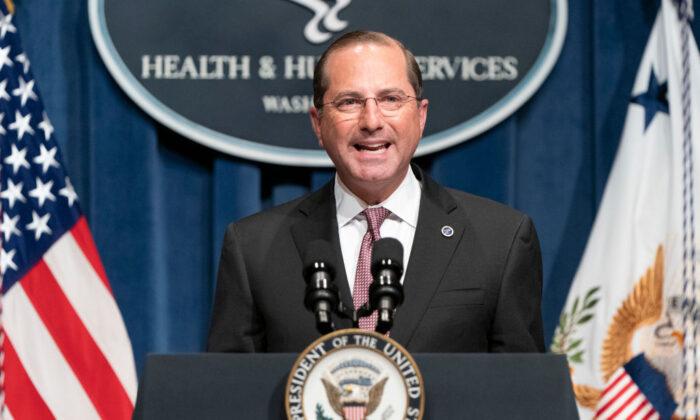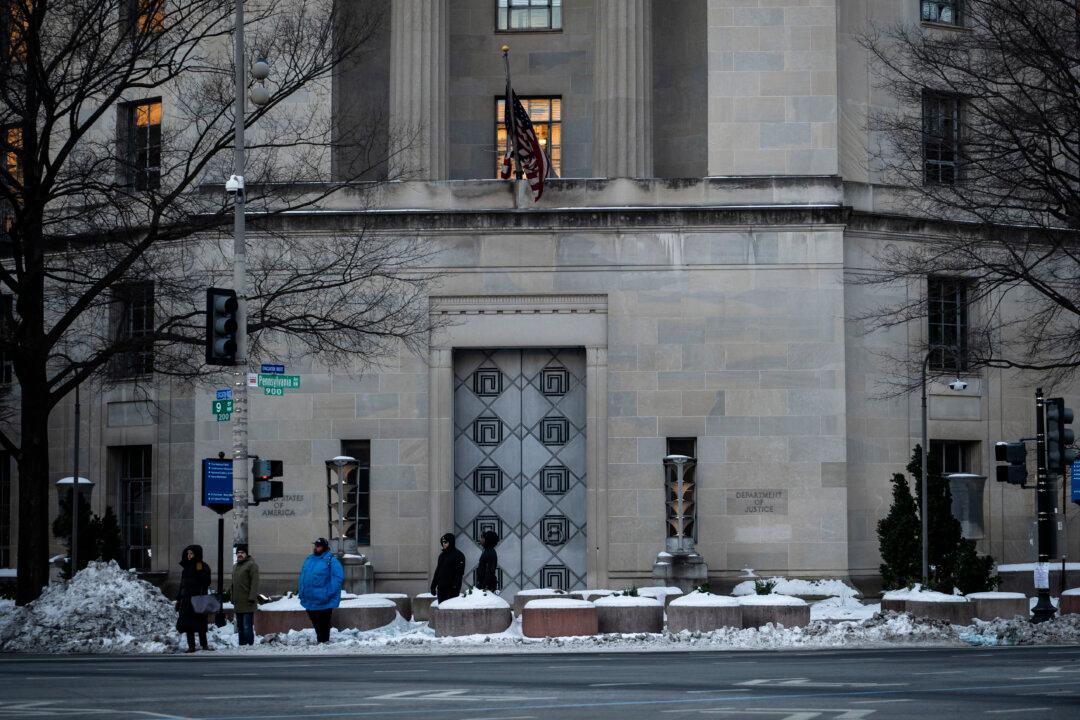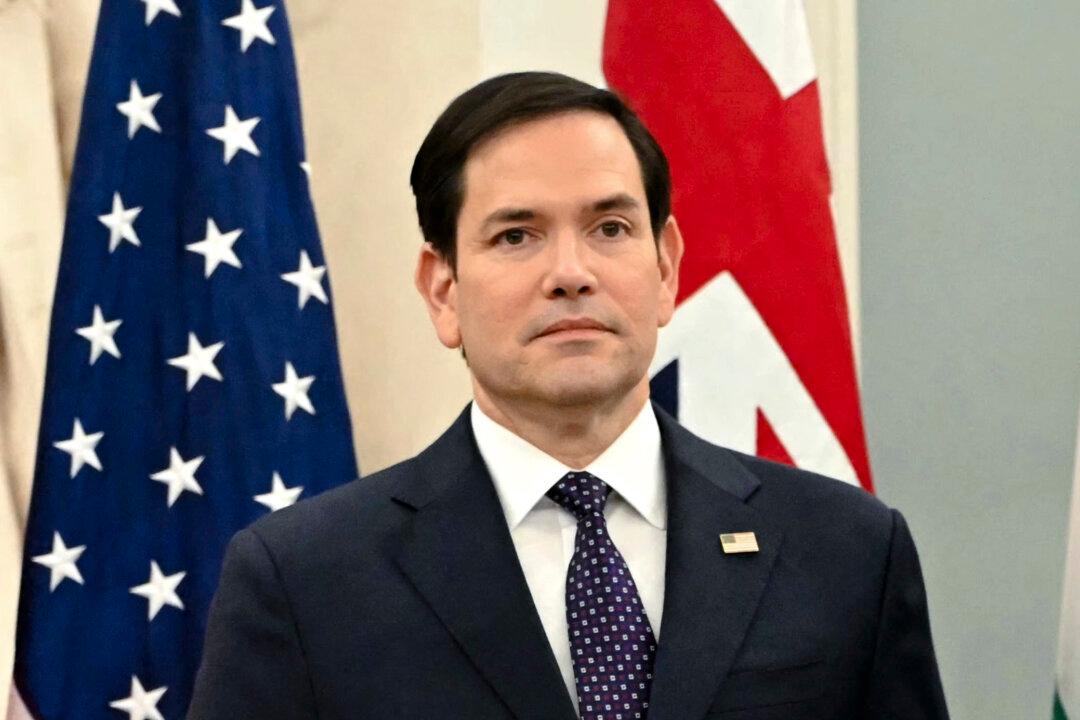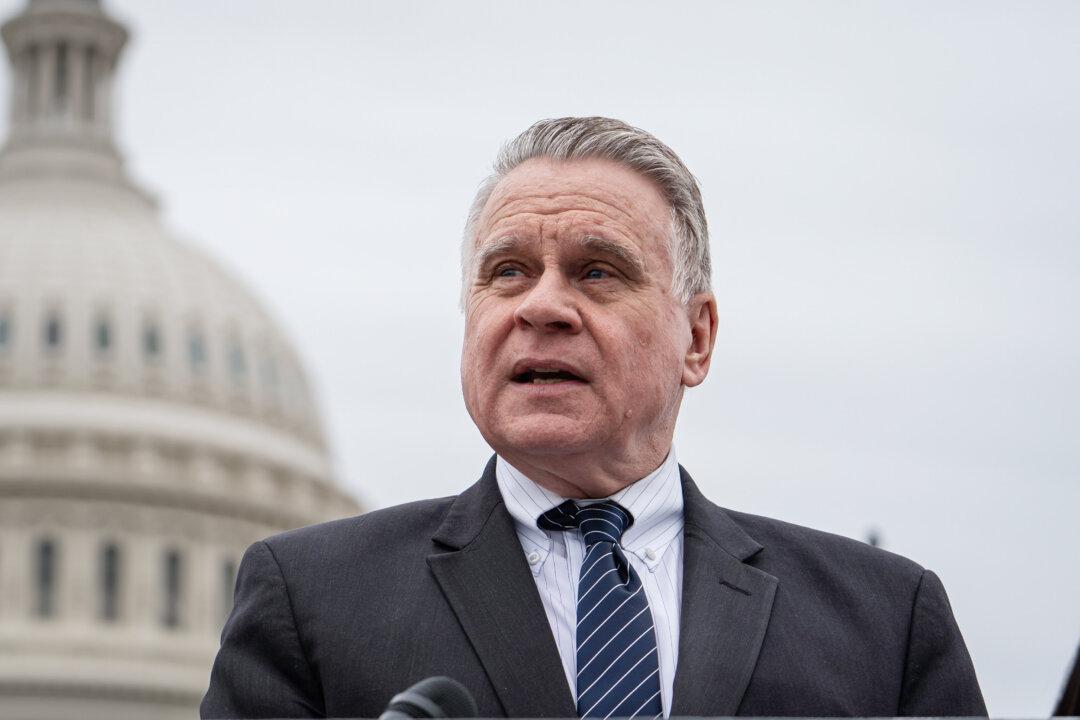TAIPEI, Taiwan—U.S. Health and Human Services (HHS) Secretary Alex Azar announced that he will lead a delegation to visit Taiwan in the coming days.
The trip is politically significant given that it will be the highest-level visit by a U.S. Cabinet member since 1979—the year the United States severed official diplomatic ties with the island in recognition of Beijing.
“I look forward to conveying President Trump’s support for Taiwan’s global health leadership and underscoring our shared belief that free and democratic societies are the best model for protecting and promoting health.”
Yotaka added that Taiwan President Tsai Ing-wen will meet with Azar and his delegation during their visit.
The United States has maintained a robust, nondiplomatic relationship with Taiwan based on the Taiwan Relations Act, under which the former has continually sold military weapons and equipment to Taiwan for its self-defense against the Chinese regime.
Beijing views Taiwan as a renegade province that must be united with the mainland and has threatened the use of military force to bring the island under its fold. The communist regime has also coerced governments and organizations into accepting its “one-China principle,” despite the fact that the self-governing island has its own democratically-elected officials, constitution, and currency.
Aside from being Taiwan’s chief arms supplier, the United States also sees Taiwan as one of its key allies in the Indo-Pacific region.
“Taiwan has been a model of transparency and cooperation in global health during the COVID-19 pandemic and long before it,” Azar said.
The HHS emphasized the contrast between how “authoritarian systems” and free societies such as the United States and Taiwan deal with the pandemic, stating that the latter were “uniquely equipped to drive global progress in areas such as medicine and science to help the world tackle emerging threats,” according to the press release.
Joining Azar on the trip are James F. Moriarty, chairman of the Board of the American Institute in Taiwan, the de facto U.S. Embassy on the island; Mitchell Wolfe, chief medical officer of the U.S. Centers for Disease Control and Prevention; Brian Harrison, HHS chief of staff; Garrett Grigsby, director of the HHS Office of Global Affairs; and other members of the Trump administration.
On Aug. 5, Chinese foreign ministry spokesperson Wang Wenbin, at a daily briefing, said Beijing opposed any interactions between U.S. and Taiwanese officials. Wang also called on Washington to adhere to the “one-China principle.”
“Especially fitting to send the Health & Human Services Secretary, given Taiwan’s incredibly strong handling of the #COVID19 pandemic. I know his visit to Taiwan will be beneficial,” Curtis wrote.





